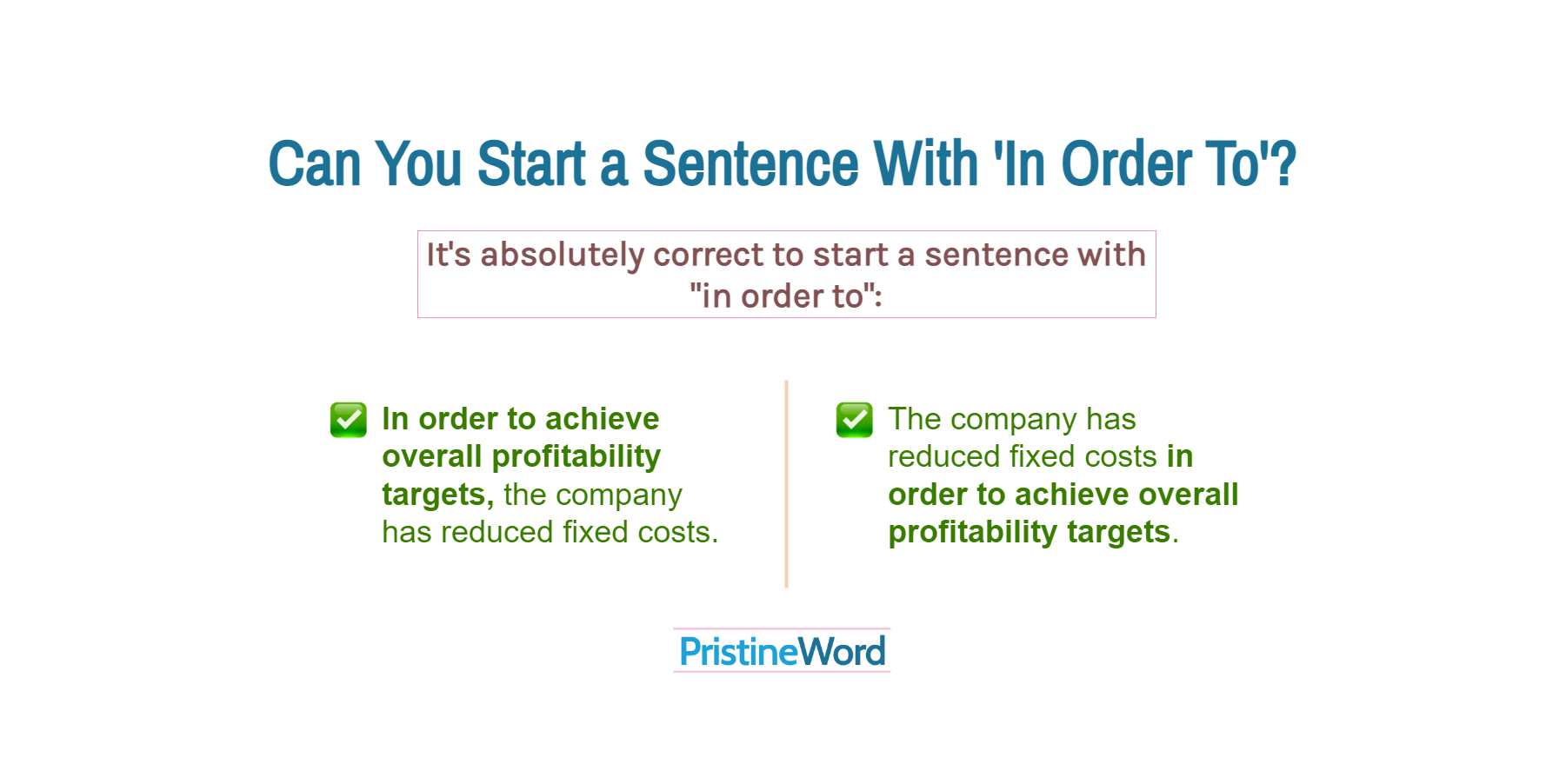It's absolutely correct to start a sentence with "in order to".
It's absolutely correct to start a sentence with "in order to". For example:
In order to achieve overall profitability targets, the company has reduced fixed costs.
"In order to" is a compound preposition that has an infinitive as its object. When using it at the beginning of a sentence, be aware of:
- Commas. Use a comma after an introductory phrase starting with "in order to" (learn more about commas and "in order to").
In order to save money for college, Olivia has started a part-time job.
In order to save money for college Olivia has started a part-time job.
- Emphasis. This construction can be used for emphasis. Overusing it, however, can be problematic from a style perspective.
In order to achieve the goal, we must first understand what the goal is. (It shows emphasis.)
We must first understand what the goal is in order to achieve it. (a more neutral version)
- The negative ("in order not to") sounds unnatural at the beginning of a sentence. Nevertheless, in many situations, you can change a negative sentence into an affirmative one without changing its basic meaning, for example, by using verbs such as "avoid", "prevent", "protect", etc.
In order not to upset her neighbors, she doesn't play loud music.
In order to avoid upsetting her neighbors, she doesn't play loud music.
Be also aware that you can replace "in order to" by "to".
To prevent water pollution, avoid flushing unnecessary items down the toilet.

